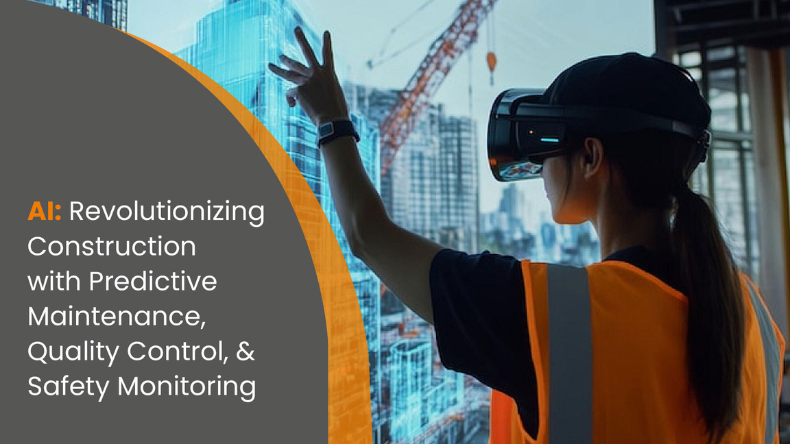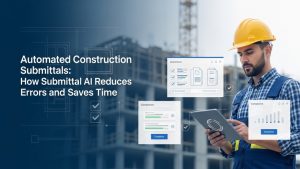Reading Time: 2 minutes
Artificial Intelligence (AI) is emerging as a powerful tool this digital age that can revolutionize various aspects of construction, from design and planning to construction and maintenance.
AI for Predictive Maintenance
Predictive maintenance, powered by AI, is revolutionizing the way construction companies approach equipment maintenance. By analyzing real-time data from sensors and historical maintenance records, AI algorithms can predict potential equipment failures before they occur. This proactive approach helps to:
- Reduce downtime: By identifying potential issues early, maintenance teams can schedule repairs and replacements proactively, minimizing downtime and maximizing equipment uptime.
- Optimize maintenance costs: Predictive maintenance helps to reduce unnecessary maintenance costs by focusing on critical components and avoiding unnecessary repairs.
- Improve safety: By identifying potential equipment failures, predictive maintenance can help prevent accidents and injuries.
AI for Quality Control
AI-powered quality control systems can significantly improve the accuracy and efficiency of construction quality inspections. By analyzing images and videos of construction sites, AI algorithms can identify defects, inconsistencies, and deviations from design specifications. This enables:
Work Smarter, Not Harder
iFieldSmart empowers your team with AI-driven efficiency to simplify scheduling, boost collaboration, and keep projects on track.
Schedule a Meeting- Faster inspections: AI-powered inspections can be performed more quickly and efficiently than traditional manual inspections.
- Improved accuracy: AI algorithms can detect defects that may be missed by human inspectors.
- Enhanced consistency: AI-based quality control systems can ensure consistent quality standards across multiple projects.
AI for Safety Monitoring
AI-powered safety monitoring systems can help to identify and mitigate safety risks on construction sites. By analyzing real-time data from various sensors, AI algorithms can detect potential hazards, such as falls, collisions, and electrical hazards. This can help to:
- Reduce accidents and injuries: By proactively identifying and addressing safety hazards.
- Improve worker safety: By providing real-time alerts and notifications.
- Enhance compliance: By ensuring adherence to safety regulations and standards.
The Future of AI in Construction
As AI technology continues to advance, we can expect to see even more innovative applications in the construction industry. From autonomous construction robots to intelligent project management systems, AI has the potential to transform the way we build.
However, it is important to note that AI is not a replacement for human expertise. Instead, it should be seen as a tool that can augment human capabilities and improve decision-making. By embracing AI in this digital age and leveraging its power, the construction industry can achieve greater efficiency, safety, and sustainability.








